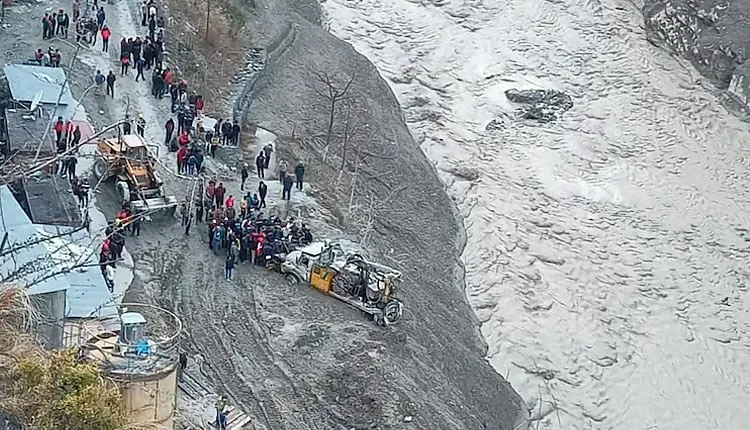The Chairman of a high-powered committee, monitoring the Chardham highway project in Uttarakhand, has written to the Supreme Court that irreversible damage has been caused to the Himalayan ecology due to the construction of hydroelectric projects and the road widening which has resulted in recent disaster of flash flood in Chamoli district.
In a letter to the apex court, Ravi Chopra, chairman of the panel, said post the Kedarnath tragedy in 2013 an expert body submitted a report highlighting impact of hydroelectric projects and had these concerns and recommendations been adopted, the massive loss of lives and property could have been avoided in the Rishi Ganga and Tapovan Vishnugad projects.
“Instead of appreciating that our report is based on scientific analysis of the available evidence and the tragedy which took place in 2013, it is highly regrettable that in its affidavit of January 15, 2021, the Ministry of Defence (MoD) has imputed insincerity of motive. “This Court may ask the MOD to withdraw such imputations. We may emphasize that no convincing argument exists in the recent affidavit of the MoD to ignore and override the profound and irreversible ecological damage to the Himalayas that will impact each and every one of us and generations to come,” Chopra said in the letter sent on February 13.
Chopra, who wrote that the committee is seriously concerned about protecting the Himalayan Ecology, also said the vulnerability and disaster proneness of this region is bound to increase with extensive disturbances like deforestation, slope cutting, blasting, tunneling, damming of rivers, excessive tourism, etc. “I am compelled to write this letter to the Supreme Court in light of the recent dams’ disaster in Uttarakhand’s Char Dham region. Two dams were destroyed in the Rishiganga and Dhauliganga (west) river valleys, before the floodwaters entered the Alaknanda valley below NH 58 (the Rishikesh to Badrinath highway) and swept away another suspension bridge.
“The Expert Body recommended that HEPs not be built in these valleys. Based on field visits, scientific publications, government reports and eye-witness reports, the Expert Body report provided evidence of irreversible damage to the Ganga river system’s Himalayan ecology due to the construction of HEPs and their role in aggravating the destruction caused by the 2013 floods.
“The Expert Body’s recommendations were accepted by Environment Ministry and placed before the Court… The flood-related concerns in all existing projects including shortcomings of Tehri Dam were also highlighted and recommendations were made by the Expert Body to develop and install the flood warning mechanism. Had these concerns and recommendations been adopted, the massive loss of lives and property could have been avoided in the Rishi Ganga and Tapovan Vishnugad projects,” he said. The letter stated that 24 proposed projects, which had not started on-ground construction work were stayed by the apex court while no decision, however, has yet been taken on under-construction or commissioned projects.






